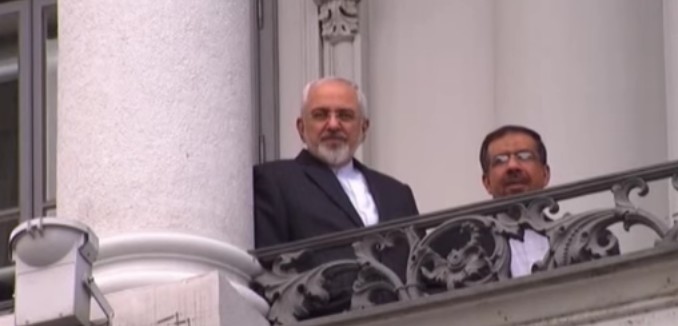Mark Dubowitz and Reuel Marc Gerecht, respectively the executive director and a senior fellow at the Foundation for Defense of Democracies, argued that the emerging deal between the P5+1 nations and Iran makes an armed conflict over Iran’s nuclear program more likely in an op-ed that appeared Thursday in The Wall Street Journal.
Dubowitz and Gerecht noted that the question of whether increased sanctions and diplomatic isolation would have forced Iran’s government to give up its nuclear program is moot, since President Barack Obama “sought the opposite path even before American and Iranian diplomats began negotiating in Europe.” The emerging Joint Comprehensive Plan of Action, they say, allows Iran to be a “threshold nuclear-weapons state and in the short-term insulates the mullahs’ regional behavior from serious American reproach.” They expressed doubt that the deal could work at it stated goals of stopping Iran from obtaining nuclear weapons, but would set up a potential confrontation anyway.
So Mr. Obama’s deal-making is in effect establishing the necessary conditions for military action after January 2017, when a new president takes office.
No American president would destroy Iranian nuclear sites without first exhausting diplomacy. The efforts by Mr. Obama and Secretary of State John Kerry to compromise with Tehran—on uranium enrichment, verification and sanctions relief, among other concerns—are comprehensive, if nothing else. If the next president chose to strike after the Iranians stonewalled or repeatedly violated Mr. Obama’s agreement, however, the newcomer would be on much firmer political ground, at home and abroad, than if he tried without this failed accord.
Dubowitz and Gerecht also pointed out that a deal won’t make Iran friendlier to the United States or less aggressive towards its neighbors. Anti-Americanism, they wrote, is central to the Iranian regime’s identity.
A nuclear deal is not going to prevent conflict either. The presidency of the so-called pragmatic mullah Ali Akbar Hashemi Rafsanjani from 1989 to 1997 was an aggressive period of Iranian terrorism. If President Rouhani, Mr. Rafsanjani’s former right-hand man, can pull off a nuclear agreement, we are likely to see a variation of the 1990s Iranian aggression.
Either by giving a future American president a more solid justification for a military strike in the likely event of Iranian violations, or by boosting the confidence of Iran’s anti-American leadership, the emerging nuclear deal, if agreed to, will make a military conflict between the West and Iran likely.
[Photo: euronews (in English) / YouTube ]




